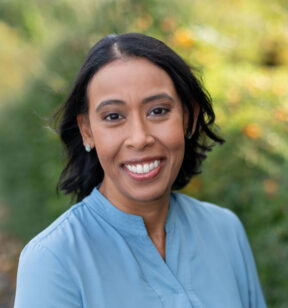Dealing with an ex-partner who refuses to co-operate
In terms of life events, divorce is one of the most challenging and stressful experiences to cope with. To help make the process less confrontational by taking the blame out of proceedings, the government introduced No Fault Divorce in April 2022. This allows one partner in a marriage to start the divorce process by simply stating that the marriage has irretrievably broken down. There is no need to apportion blame, and the legal separation can begin without the other partner being able to contest it. In most cases, this has been a positive step forward.
However, one negative impact has been the continued need by one partner to blame the other for the failure of the relationship. Without the opportunity to blame the breakdown of the marriage on an ex-partner’s adultery or unreasonable behaviour, some people are now transferring their frustration into other matters relating to the divorce. This means they can be difficult and uncooperative when trying to sort out arrangements for finances and children.
Examples of unco-operative behaviour
- The failure to engage with selling a family home or other property involved in the divorce.
- The failure to stick to any child arrangements around contact and custody.
- The failure to pay any lump sum monies due or to make ongoing child maintenance payments.
- The failure to implement a pension sharing order
Ways to encourage more co-operation
If you are both able to still communicate with each other, having a direct and honest conversation may be able to resolve any issues. You can both set the pace, there is no need to involve family solicitors and resolutions incur no legal fees.
Where this isn’t possible, mediation can help. This involves an impartial mediator helping you both to reach a mutual agreement on issues such as children and finances. The mediator is also able to signpost further assistance such as family solicitors, counsellors, financial advisors and pensions experts. This is an open and transparent process, which can help to keep relations as amicable as possible.
At Tisshaws, we have three qualified family mediators: Richard, Verity and Hana.
Failing that, collaborative law can also be used to help keep the issues out of the courtroom. This process involves both parties and their respective solicitors having a series of meetings to work through their issues. Experts can be included in these to offer specific guidance on child welfare, finances and pensions. All involved must agree not to issue court proceedings to encourage everyone to engage with the process in a positive fashion.
At Tisshaws, we have four trained collaborative lawyers: Gilva, Richard, Verity and Yasmin.
Moreover, if there is a specific issue which you cannot reach an agreement on, such as school holidays or pension sharing, an arbitration hearing can be arranged. These hearings are heard before an arbitrator, who is usually a trained barrister or judge. While the couple retain control over who conducts the arbitration, along with when and where the hearing takes place, the Arbitrator’s ruling is legally binding.
At Tisshaws, our main conference room can be set up for arbitration meetings.
Court proceedings
As a final resort, if an ex-partner remains uncooperative court proceedings can be instigated. However, these are costly, subject to lengthy delays, stressful and can increase the hostility between you both, which is not ideal for those co-parenting children.
If you are struggling with issues arising from separation and divorce, we offer a no obligation initial consultation for a fixed fee of £100 (incl. VAT), for up to one hour. At this meeting, we can advise you on all the issues relating to your personal circumstances, allowing you to make informed decisions moving forward.
To book an appointment please call 01444 472700, email us at info@tisshawssolicitors.co.uk or complete the form below.

Book a consultation to discuss your options –
Only £150 (Incl. VAT)
We know how difficult divorce and separation can be, so we offer an initial one hour fixed fee consultation with a fully qualified lawyer, to help you make an informed decision about how to proceed.
To book, please call 01444 472700 or complete the quick contact form.
